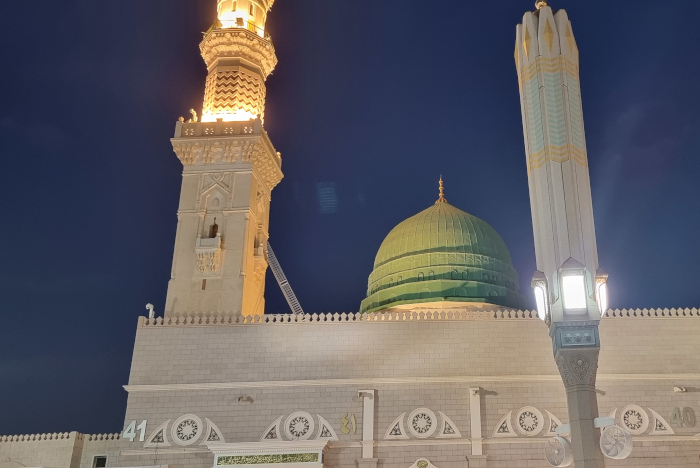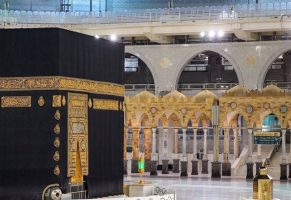
Who Had Breastfed Rasulullah (sallallahu ‘alaihi wasallam)?
After his birth, Rasulullah (sallallahu ‘alaihi wasallam) was breastfed by his respected mother, Aaminah, for a few days. Thereafter, he was breastfed by Suwaibah, the freed slave of his uncle, Abu Lahab. (Sharhuz Zurqaani 1/258)
It is reported that when Rasulullah (sallallahu ‘alaihi wasallam) was born, Suwaibah came to Abu Lahab to give him the good news of his nephew’s birth. Abu Lahab was overjoyed with the good news, and out of joy, he immediately gestured to her and said, “I have set you free.” (Sharhuz Zurqaani 1/259)
After Abu Lahab’s demise, Hazrat Abbaas (radhiyallahu ‘anhu) had once seen him in a dream in an extremely pitiful condition. He asked him how he was faring, to which Abu Lahab replied, “After I died, I have not found any comfort (on account of the punishment that I am undergoing due to opposing Rasulullah [sallallahu ‘alaihi wasallam]). However, because I freed Suwaibah at the time when she had given me the good news of the birth of Rasulullah (sallallahu ‘alaihi wasallam) (which occurred on a Monday), every Monday, my punishment in the Hereafter is decreased, and I am provided with a little water which is equal to the gap in-between my index finger and thumb (as I used these two fingers to gesture towards Suwaibah at the time when I set her free).” (Saheeh Bukhaari #5101 & Sharuhuz Zurqaani 1/260)
Being Breastfed by Haleemah Sa’diyyah
After being breastfed by Suwaibah for a few days, Rasulullah (sallallahu ‘alaihi wasallam) was breastfed by Haleemah Sa’diyyah. Rasulullah (sallallahu ‘alaihi wasallam)’s mother had sent him to the countryside to live with Haleemah Sa’diyyah and to be breastfed by her.
It was the tradition among the noble Arabs to send their suckling infants to the countryside so that they would be raised in the clean and pure environment of the countryside, they would learn to speak eloquent Arabic, and so that they would not lose the qualities and culture of the noble Arabs. (Rowdhul Unf 1/287)
Hence, Rasulullah (sallallahu ‘alaihi wasallam) stayed with Haleemah Sa’diyyah in the countryside for approximately four years, and was then brought back to his mother in Makkah Mukarramah. (Sharhuz Zurqaani 1/282)
The Immense Blessings Enjoyed Due to Rasulullah (sallallahu ‘alaihi wasallam)
As soon as Haleemah Sa’diyyah took Rasulullah (sallallahu ‘alaihi wasallam) into her care, Allah Ta‘ala blessed her with abundant barakah and goodness. Her condition prior to taking Rasulullah (sallallahu ‘alaihi wasallam) was such that her camel would not even provide a single drop of milk, due to famine and drought. Hence, she and her family were suffering such hunger that they could not sleep at night, and she did not have sufficient milk to breastfeed her own infant child.
However, as soon as she took Rasulullah (sallallahu ‘alaihi wasallam) into her care, her entire condition changed and was transformed from difficulty to ease, and she witnessed miracles unfold before her eyes.
Haleemah Sa’diyyah describes the goodness she received through Rasulullah (sallallahu ‘alaihi wasallam) in the following words:
“As soon as I placed this blessed child in my lap in Makkah Mukarramah, my dried-out bosom began to fill with milk. I produced so much of milk that both he and his milk-brother were able to drink to their fill. When we went to milk our camel, we saw its udders full of milk. My husband and I both satiated ourselves with its milk, and we then passed the night in great comfort.
“The following morning, my husband said to me, “O Haleemah! By Allah! You have indeed taken an exceptionally blessed child into your care!” To this I replied, “By Allah! I say with conviction that this is what I am desirous of receiving from Allah Ta‘ala.”
When it was time for the caravan to depart from Makkah Mukarramah to the countryside, all the travelers of the caravan mounted their conveyances and set out. Haleemah Sa’diyyah also mounted her conveyance with Rasulullah (sallallahu ‘alaihi wasallam).
Previously, her thin, weak camel would need to be whipped to spur it to move forward. However, it was now moving with extreme speed and was not slowing or delaying in the least. Observing the amazing transformation that overcame the camel, the other women of the caravan asked in surprise, “O Haleemah! Is this the same camel you came with? By Allah! Its condition is now completely different compared to before!” In this manner, the caravan arrived in Banu Sa’d in the countryside.
The Blessings of Rasulullah (sallallahu ‘alaihi wasallam) in the Home of Haleemah Sa’diyyah
Haleemah Sa’diyyah describes the blessings which she received via Rasulullah (sallallahu ‘alaihi wasallam) in her home. She says:
“At the time when I had reached home with Rasulullah (sallallahu ‘alaihi wasallam), we were experiencing severe drought. No other region was affected by the drought as severely as our tribe, the Banu Sa’d. However, despite the drought, I had seen that when my goats would return home in the evening, their udders would be filled with milk, whereas the other goats would return hungry without a drop of milk in their udders.
“On witnessing this, the people urged their shepherds to graze their goats in the same place where my goats grazed. However, although the shepherd complied with their commands, my goats would return at the end of the day satiated and with their udders bursting with milk, while the goats of the other people would still return hungry and without any milk in their udders.”
Haleemah Sa’diyyah mentions, “In this way, Allah Ta‘ala continued to show us and continued to shower upon us His special blessings and goodness on account of Rasulullah (sallallahu ‘alaihi wasallam) being with us.” (Rowdhul Unf 1/287-288)
Source: The Illustrious Sahaabah
 Ihyaaud Deen An Effort to Revive Deen in Totality
Ihyaaud Deen An Effort to Revive Deen in Totality



